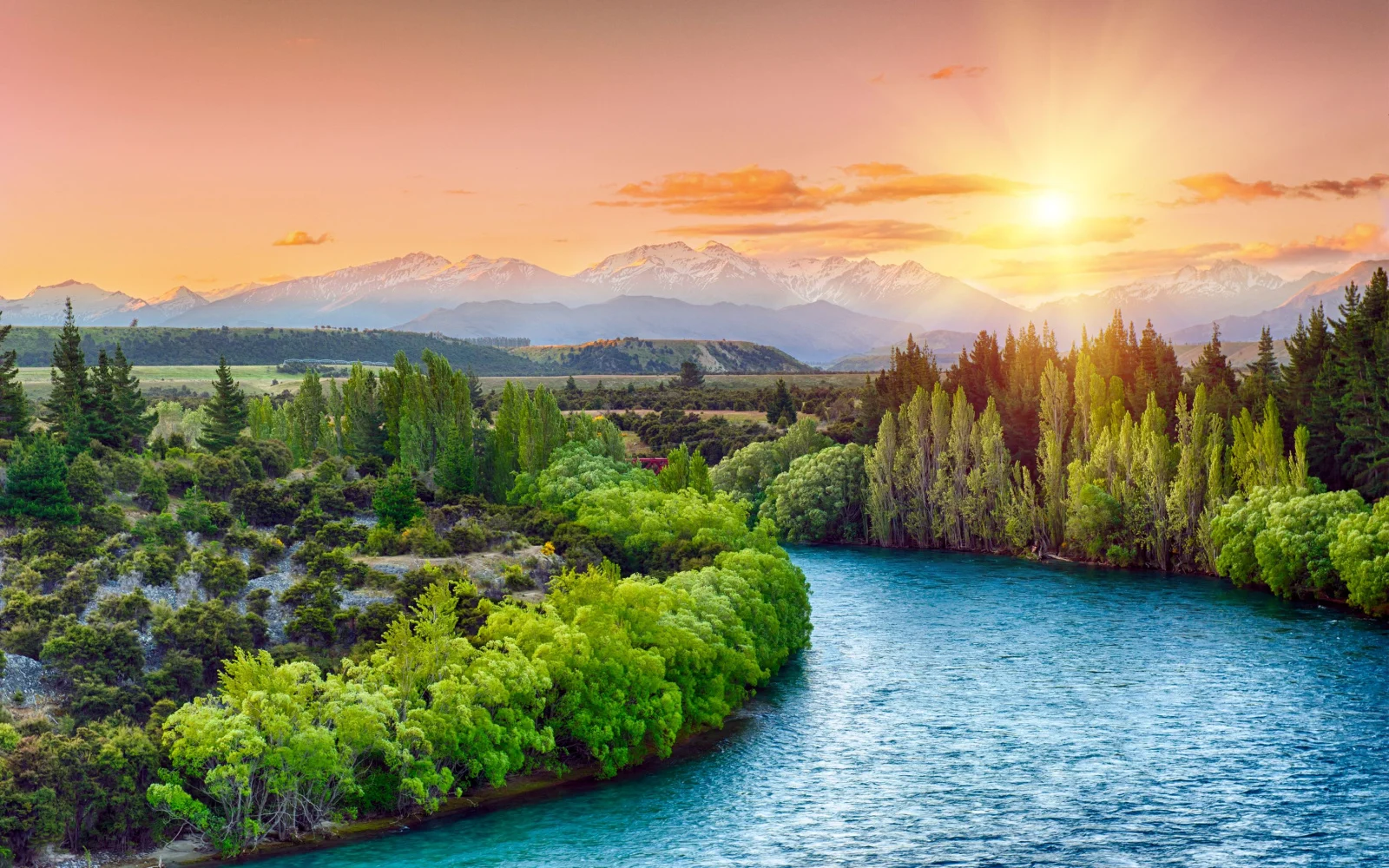Is New Zealand safe to visit in 2025?
Even though it is in one of the remotest corners of the world, for many people, a trip to New Zealand is a trip of a lifetime. During peak periods, over 500,000 visitors per month arrive in New Zealand.
Most travelers to New Zealand are nature lovers who want to see the stunning landscapes that formed the backdrop for the Lord of the Rings trilogy. Places such as Glacier Country, Fiordland, and Rotorua are destinations for hiking, camping, and admiring the scenery.
New Zealand’s cities, such as Auckland, are a great way to check out the laid-back culture that Kiwis are proud of, as well as the influences of the indigenous Maori.
Besides looking at pictures of the beautiful destinations that you want to see in New Zealand, there are more practical things you need to do in preparation for your trip. Namely, you should read up on safety concerns, as you should before going anywhere new.
Luckily, we put together this detailed travel guide to any potential safety concerns in New Zealand, including crime. Keep reading for the ultimate peace of mind while you are planning your trip!
Is New Zealand Safe to Visit in 2025?
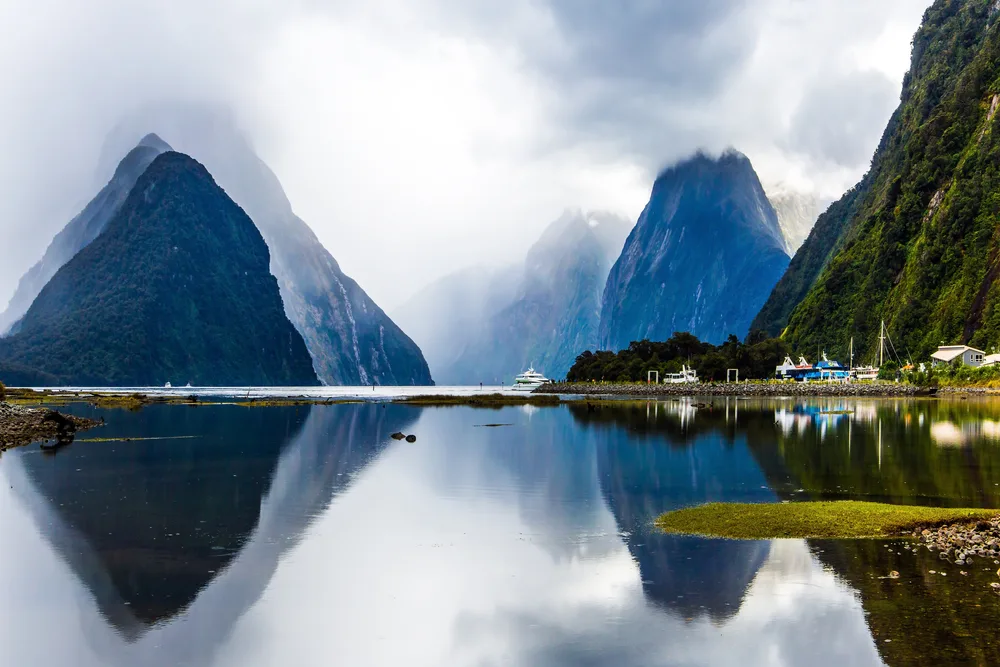
Kavram/Shutterstock
Yes. New Zealand is one of the safest countries in the world, so you are unlikely to experience any problems when you visit.
The crime rate is generally low, and the society is safe, as you can see from the friendliness and open nature of most locals. The biggest danger to your safety is extreme weather or an accident while you’re exploring the great outdoors.
When we say that New Zealand is one of the safest countries in the world, that is backed up by international markers.
One of the prime sources for analyzing the comparative safety of different countries, the Global Peace Index, ranks New Zealand as the second safest country in the world, only behind Iceland.
Travel advisories from foreign governments are also a good indicator of how safe a country is.
The United States only puts New Zealand under a Level One travel advisory, just telling travelers to exercise normal precautions as they would at home. Like any other country, New Zealand does have problems. Some of its cities have slightly elevated crime rates.
Common problems mentioned in travel advisories include:
- Theft
- Pickpocketing
- Assault
- Sexual assault
- ATM fraud
- Vehicle break-ins
All of these crimes can happen, but the rates of incidents are usually very low. Plus, you can avoid them with some basic precautions. New Zealand’s nature is probably a more likely source of trouble than the locals.
New Zealand is prone to many natural disasters due to its location in a seismically active area. Common natural disasters include volcanic activity in some remote areas, earthquakes, tsunamis, and extreme weather events such as cyclones.
There is no way to predict or avoid earthquakes and other forms of seismic activity, but reading up on earthquake emergency responses is a smart way to prepare before visiting New Zealand.
Most people head to New Zealand to check out the stunning features of nature and go hiking or camping. Anywhere you go into the great outdoors, it’s important to take precautions and not go on a difficult hiking route with no preparation.
The New Zealand tourism board has some advice for travelers heading into nature, including planning your route carefully with your physical limitations in mind, wearing quality hiking gear, and preparing for New Zealand’s unpredictable weather.
Always tell someone where you are going and follow any posted warnings about hiking in the area. Some people go to New Zealand in search of more high-adrenaline adventures than hiking, such as ziplining, rock climbing, and parasailing.
There have been deadly accidents involving foreign tourists in the past, such as the 2019 volcanic eruption that killed 16 people on White Island.
When engaging in risky activities, make sure that you do the risk assessment beforehand and that you are going with a reputable tour operator — never go alone or with someone that you did not research beforehand. Good travel insurance is also key in case of an emergency.
Depending on the activities you are planning, you may be exposing yourself to more risk than the average tourist in New Zealand.
However, with some research, even an outdoor adventure in New Zealand should be perfectly safe. Search and rescue facilities in the country are very well-developed, as is infrastructure in most popular natural areas.
Crime in New Zealand
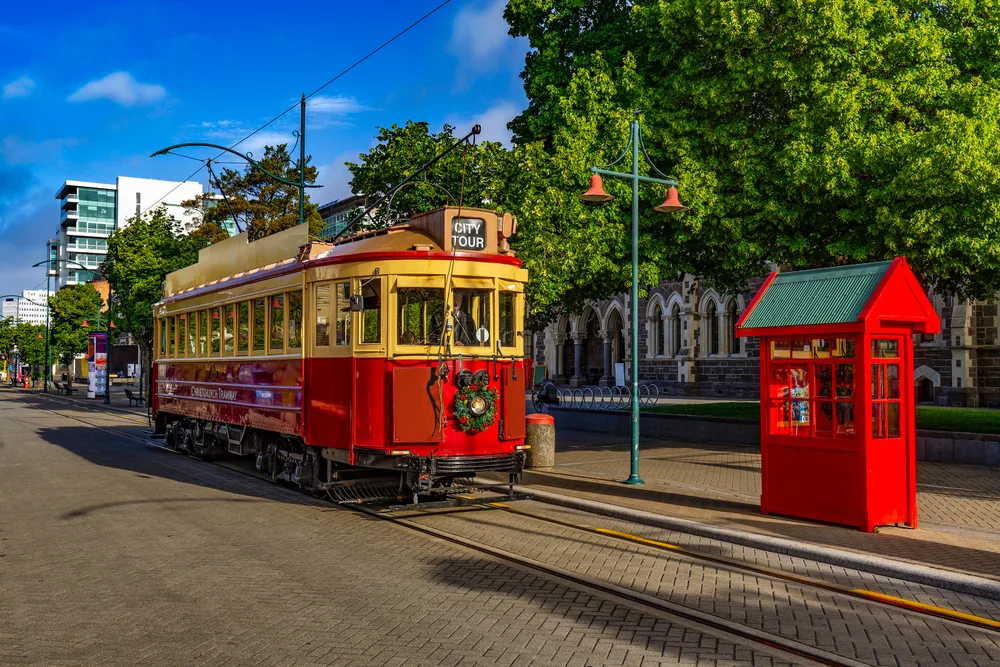
WitR/Shutterstock
When heading to any new place, the primary worry on most travelers’ minds is crime. After all, everyone’s heard horror stories about a friend who was robbed while on vacation — or worse.
Crime is something that you don’t have to worry about in New Zealand. The crime rate is very low, particularly the violent crime rate, although the country experienced some rise in crime over the past few years.
While there is street crime in some of the bigger cities, in most places, crime is mostly unheard of. There are statistics to back this claim up. The violent crime rate is very low.
For example, New Zealand has a homicide rate of 2.60 as of 2018. Homicides have been declining over the past few years, with the exception of a spike in 2019 due to the Christchurch massacre.
The Christchurch massacre was a far-right terrorist attack on two mosques in Christchurch that killed 51 people. The event made headlines and shocked New Zealand society precisely because such extreme events are rare.
According to official crime statistics from the New Zealand police dating back to 2020, the vast majority of crimes that occur in New Zealand are property crimes, comprising precisely 73% of total crimes committed.
The most common property crime is theft, followed by theft from a retail premise. There are definitely problems present in the country.
Like most countries, New Zealand experienced a growth in violent crime immediately after COVID-19 lockdowns ended, particularly in bigger cities such as Auckland and Wellington.
The biggest rise in crime occurred among assaults. Analysts tied the rise in crime to cracks in the social safety net, particularly among at-risk young people, a continued emptiness of downtown areas, and growing poverty rates.
Assault rates also increased due to the reclassification of some domestic violence offenses within that category.
It’s clear that New Zealand still has problems despite its idyllic reputation, but most tourists will never experience these issues, especially if they take basic precautions.
Petty Theft
The most common crime that visitors to New Zealand are likely to experience is petty theft. These are non-violent crimes of opportunity that take advantage of a traveler’s distraction.
The Canadian government says that there have been incidents of petty theft, such as pickpocketing and purse snatching. The government advisory also lists common locations for these crimes, including tourist sites in major cities and recreational areas such as parks.
The New Zealand police have tips on their website to help people stay safe. Avoid carrying too many valuables on you so that if you do get robbed, it is not the end of the world.
Never leave your valuables unattended, even for a short period. If a crime does occur, the police are responsive, so report it immediately. There has also been an increase in theft from hotel rooms in tourist areas, a fact which the UK government includes in its travel advisory.
When booking accommodations, always do research and read reviews from previous travelers about safety. Don’t leave your valuables lying openly in a hotel room; put them in a hotel room safe (try to book accommodations that have a safe).
Theft from Vehicles
One of the most common forms of petty theft in New Zealand is theft from vehicles. The Australian government mentions in its travel advisory that thieves “often target valuables left in cars and campervans.”
Campervans, in particular, are a popular target because thieves know that they are often rented by tourists and that they are more likely to hold people’s important possessions.
When you park your vehicle, particularly your campervan, choose the location carefully.
The New Zealand police advise parking campervans in holiday parks or official Department of Conservation camping grounds as these have more supervision and are less likely to experience theft.
Always park your vehicle in a well-lit, well-trafficked area or a place that is within view of a CCTV camera. Avoid parking at remote trailheads, as that is a signal to thieves that the vehicle is unattended and that the occupants won’t be back for a while.
Another way to prevent theft is never to leave valuables in your vehicle if you can avoid it.
Always put your possessions out of view, for example, in the glove compartment or trunk. Still, this is no guarantee that you will be safe from theft, so the best option is always to take whatever you can’t bear to lose with you.
Avoiding Bad Areas
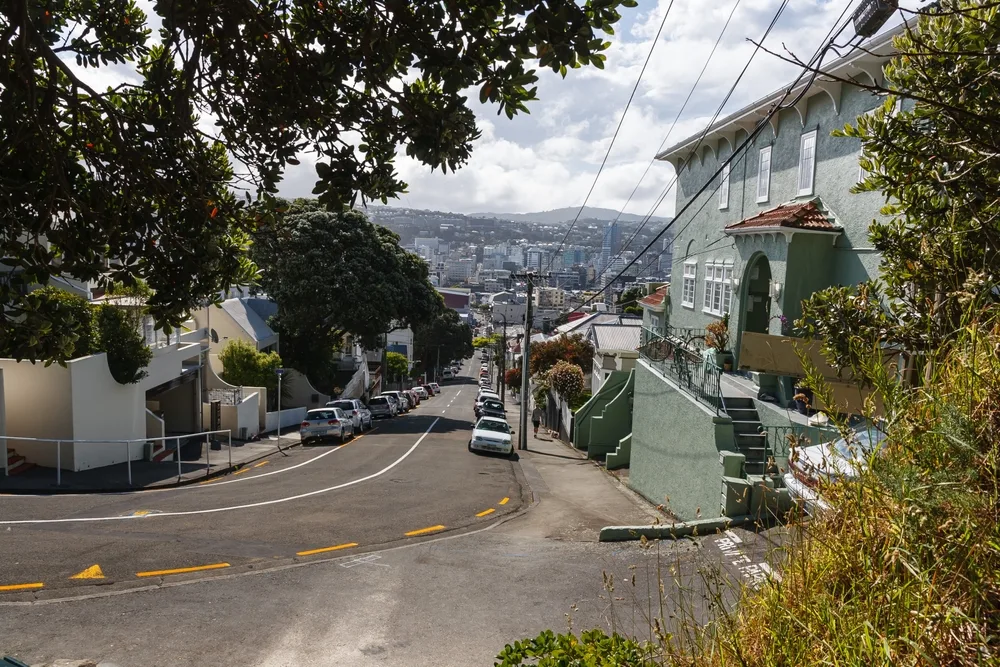
Robin_Berger/Shutterstock
New Zealand’s big cities are much safer than most cities of their size globally, but they still have some areas that are higher in crime.
In Auckland, avoid the Central Business District at night as the streets empty out and crime rates rise. Some locals say that the southern part of the city is a bit sketchy.
In Wellington, avoid alleyways near streets such as Courtenay Place, Willis Street, and Vivien Street, as there have been cases of violent crimes targeting people on a night out.
Things to Consider
Here are a few additional tips to consider for safety in New Zealand:
- New Zealand has a binge-drinking culture, and nice, pleasant Kiwis can become extremely rowdy when they go out. Violent crimes are often related to alcohol, as drunken disputes can easily escalate. Be careful when going out, and only go with a trusted group. Know your limits, keep an eye on your drinks, and leave the second the situation feels tense.
- New Zealanders drive on the left, so keep that in mind if you come from a country with other driving rules and you are renting a car here.
- Some people like to hitchhike around New Zealand, and it is allowed by law, but it is risky both to hitchhike and to pick up hitchhikers.
- ATM fraud has happened before. Only withdraw money from a trusted ATM and look carefully at the output for potential skimmers. Cover your PIN when you input it to protect it from hidden cameras or watchers.
Frequently Asked Questions
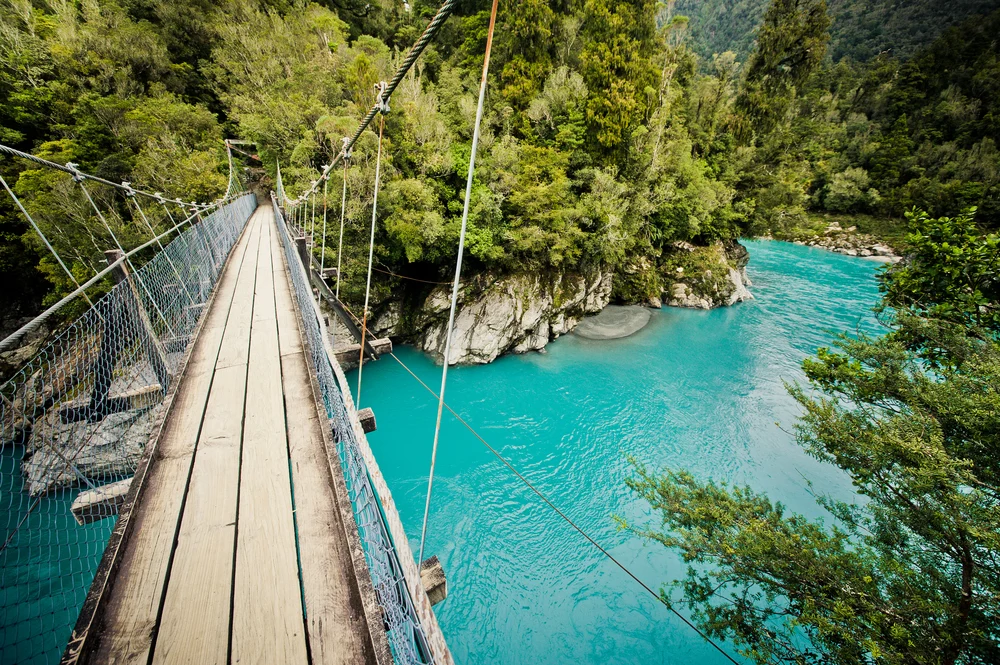
Shaun Jeffers/Shutterstock
Here are some common questions other visitors to New Zealand have asked before:
Is New Zealand friendly to visitors?
New Zealand is very friendly to visitors, and Kiwis pride themselves on their welcoming nature. However, be careful if someone seems too interested in you or overly friendly, as that is a common tactic used by scam artists or more serious criminals, especially in bars or nightclubs.
Is Canada or New Zealand safer?
Canada and New Zealand are both very safe countries. New Zealand is slightly safer because it has a slightly lower crime rate, probably due to its lower population.
Where in New Zealand is it safest?
It’s hard to pick a place in New Zealand that is safest since most of the island country is extremely safe. However, the small city of Hamilton is routinely voted the safest place in New Zealand, with very low crime rates.
Is New Zealand an inexpensive country to visit?
The safety of visiting New Zealand comes at a price — literally. New Zealand is a pricey country to visit. Just getting to the country is pricey from most parts of the world.
Not to mention that accommodations, getting around the country (since you most likely have to rent a vehicle), and other costs are high. However, it is worth it to admire the landscape.
Does New Zealand speak English?
English is the most commonly spoken language in New Zealand and one of the official languages along Te Reo Māori and New Zealand Sign Language. However, the Kiwi accent is often hard for visitors to understand at first!
Book Your Trip to New Zealand Today!
New Zealand is one of the safest places in the world to visit, thanks to its low crime rate. Just be careful of the dangers when engaging in adventure tourism. So, with so much to see and do, what are you waiting for — book your trip today!



